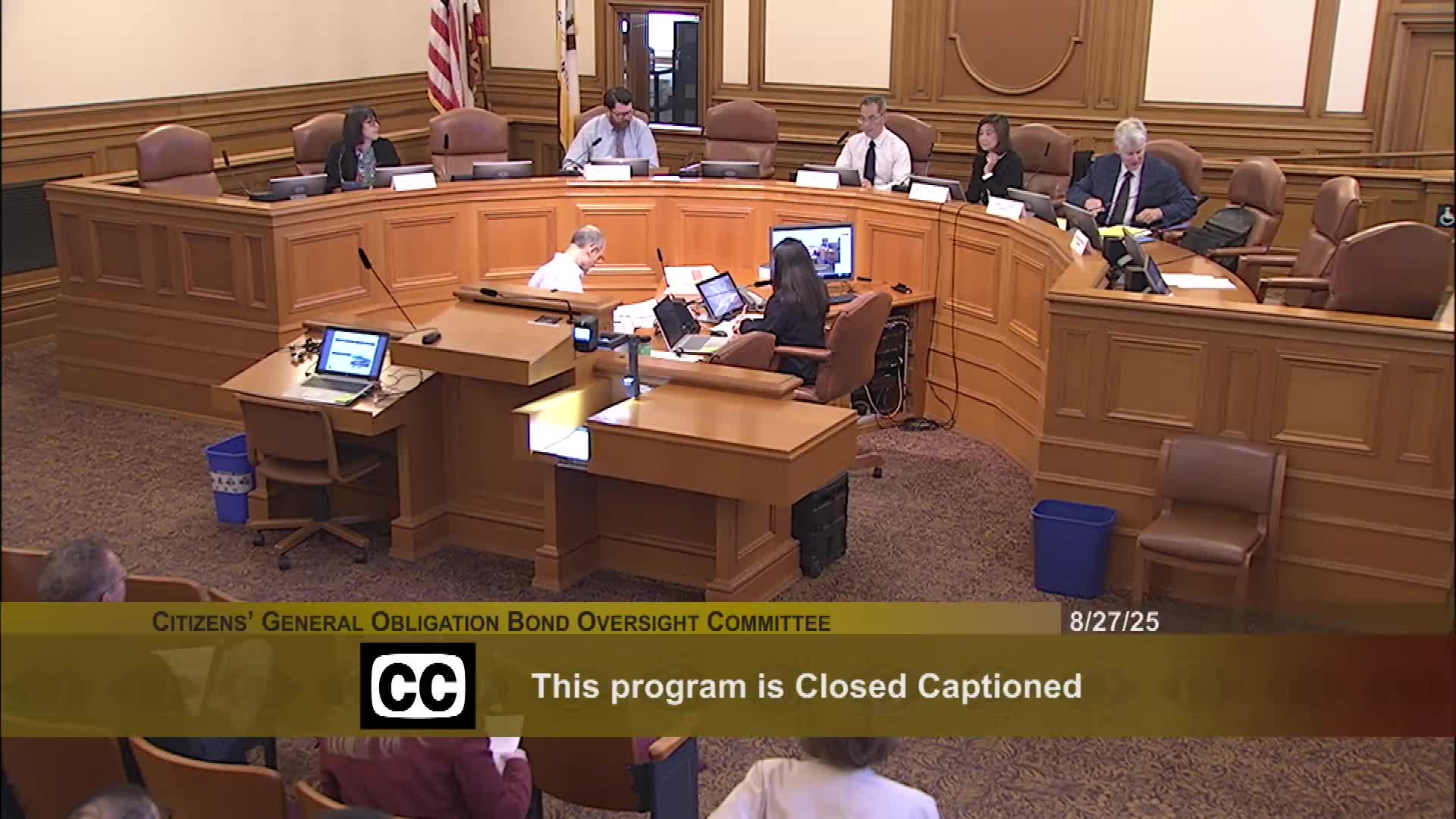Article not found
This article is no longer available. But don't worry—we've gathered other articles that discuss the same topic.
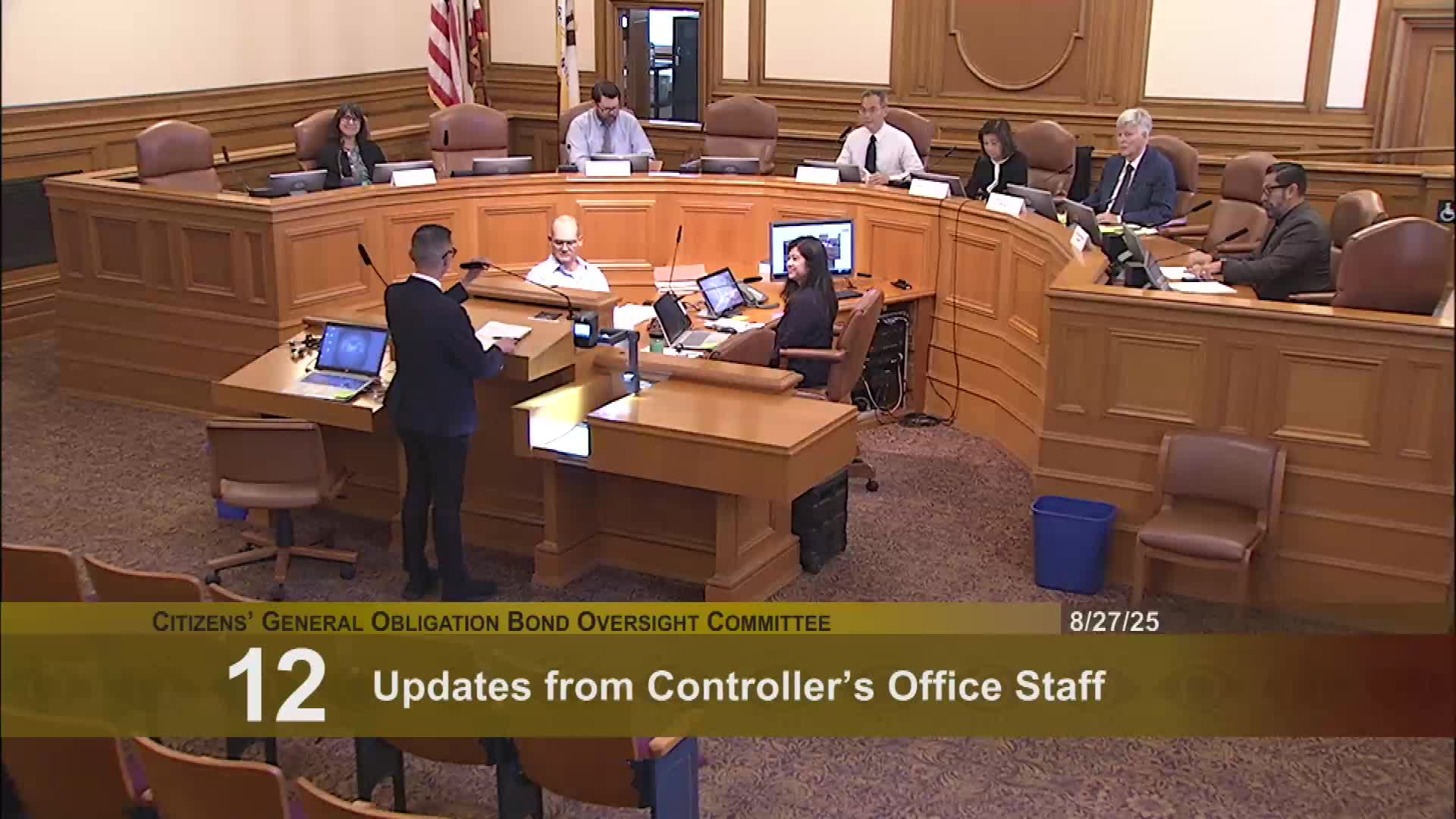
Controller’s audits unit and public finance outline upcoming audits and bond sales calendar
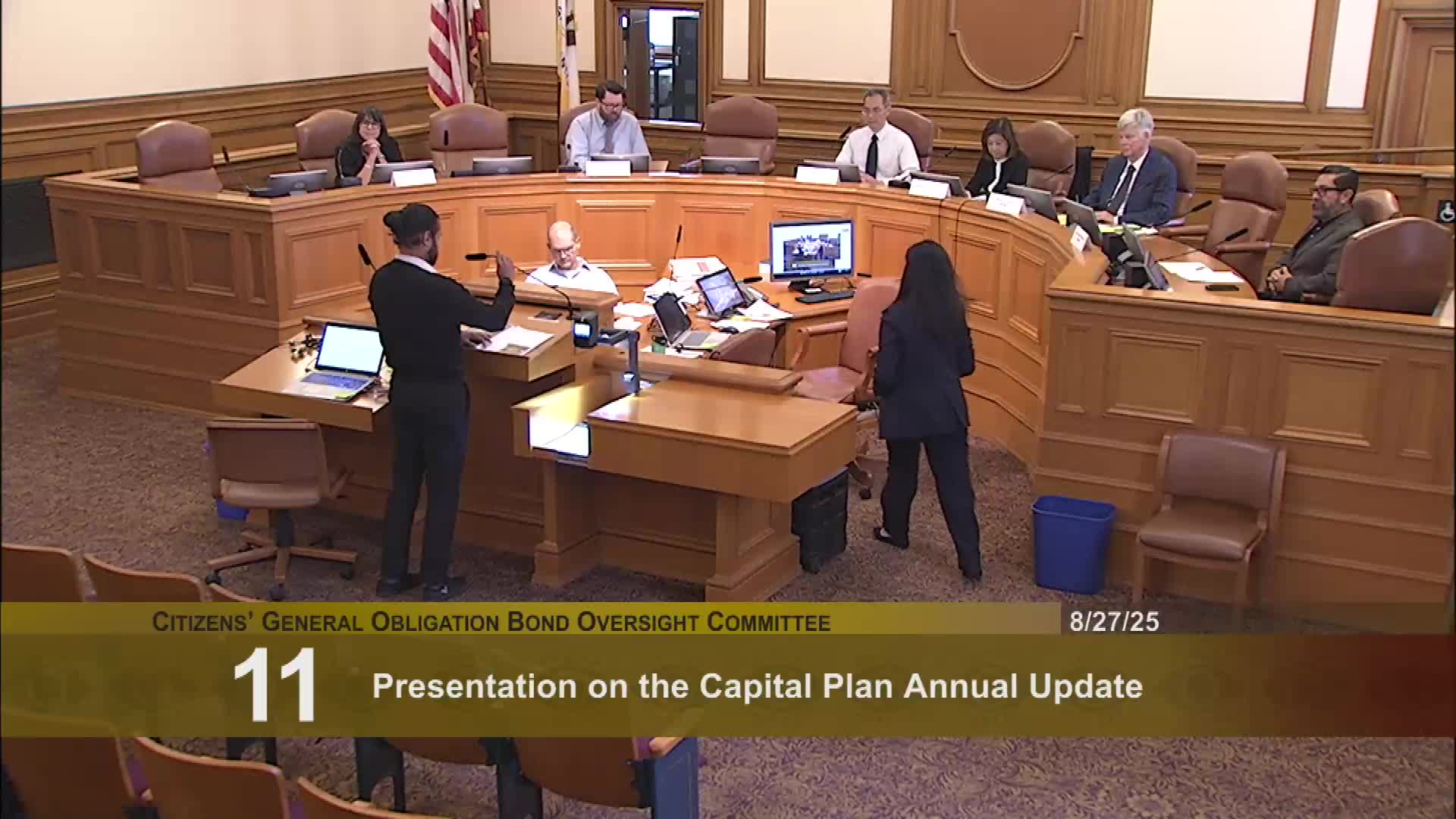
Office of Resilience and Capital Planning presents $52 billion 10-year capital plan; deferred maintenance estimated near $1 billion
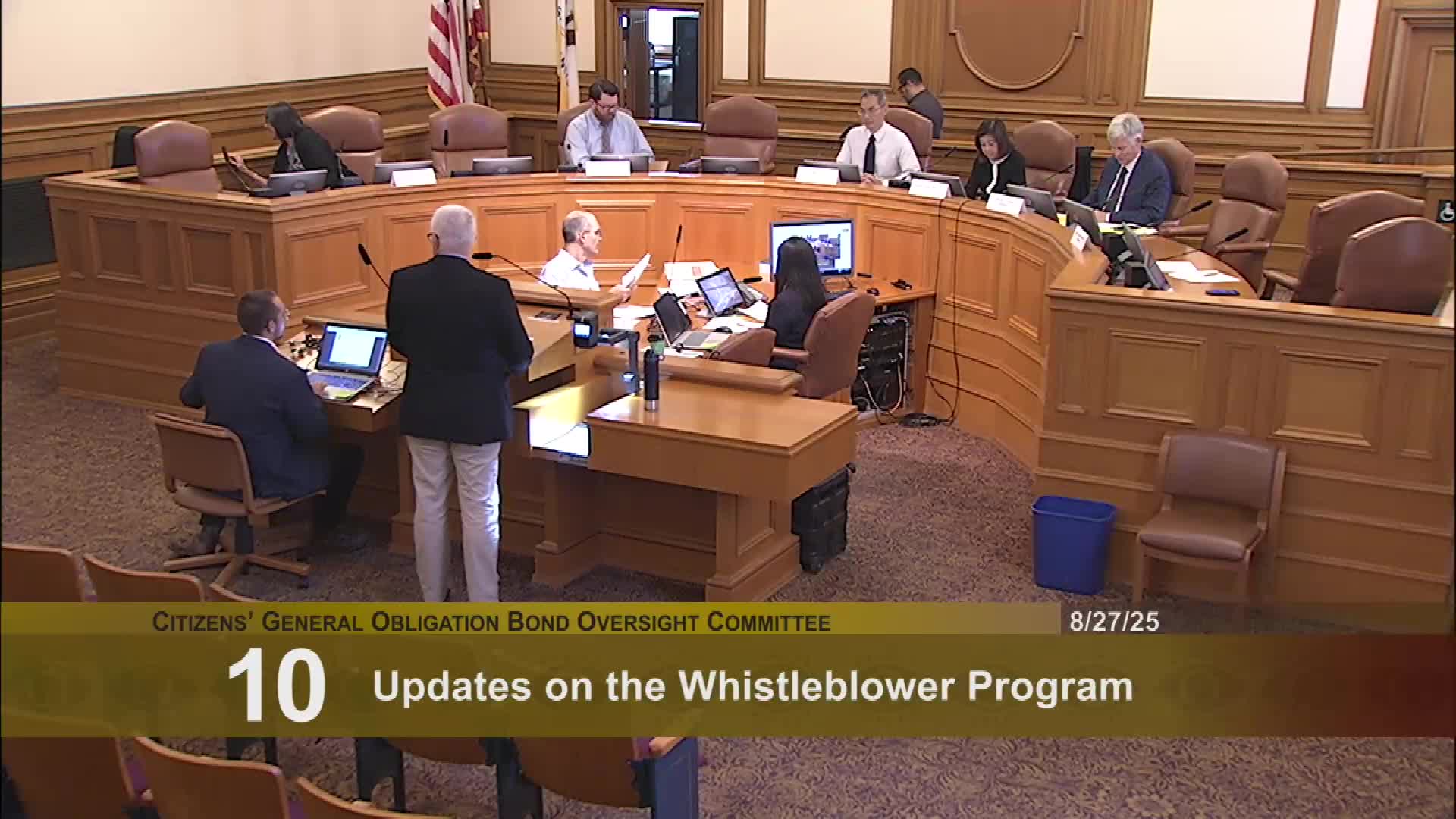
Whistleblower office reports rising caseload, high closure rate and new case-management system
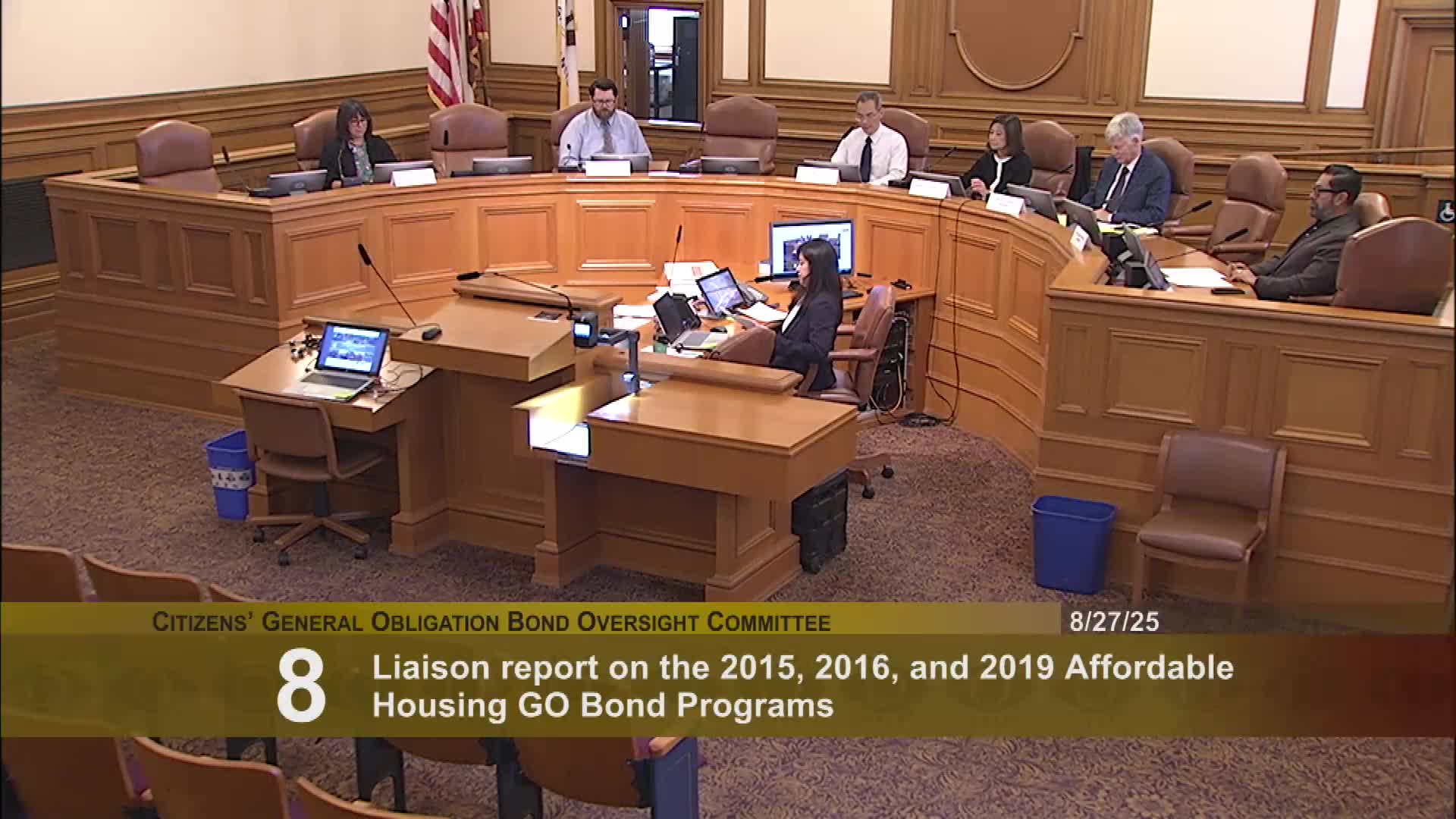
Committee hears multi-agency update on 2020 Health & Recovery bond: parks, housing and public-health projects
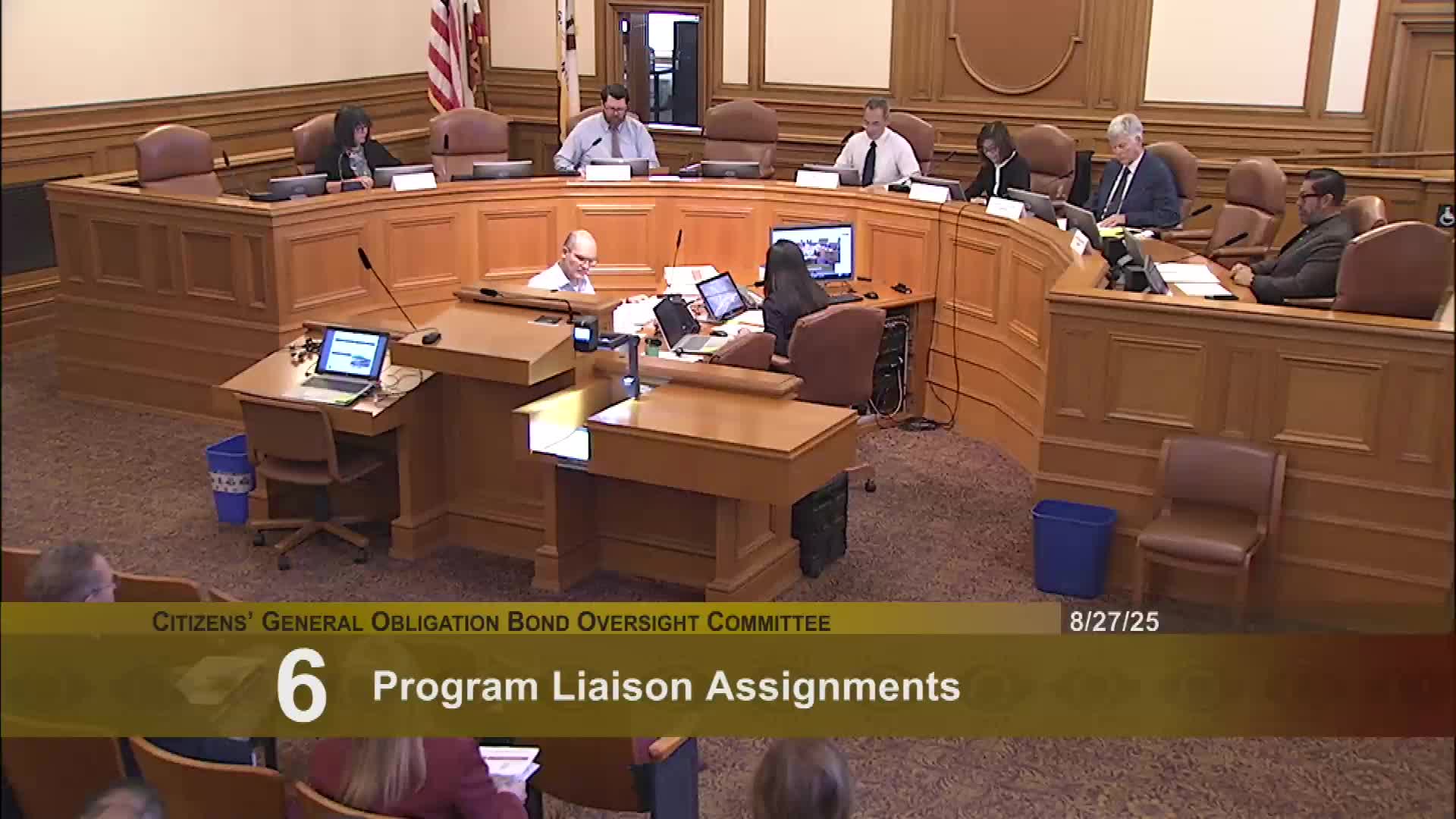
City updates status of 2010, 2014 and 2020 earthquake-safety bonds; cites construction milestones and supply-chain delays
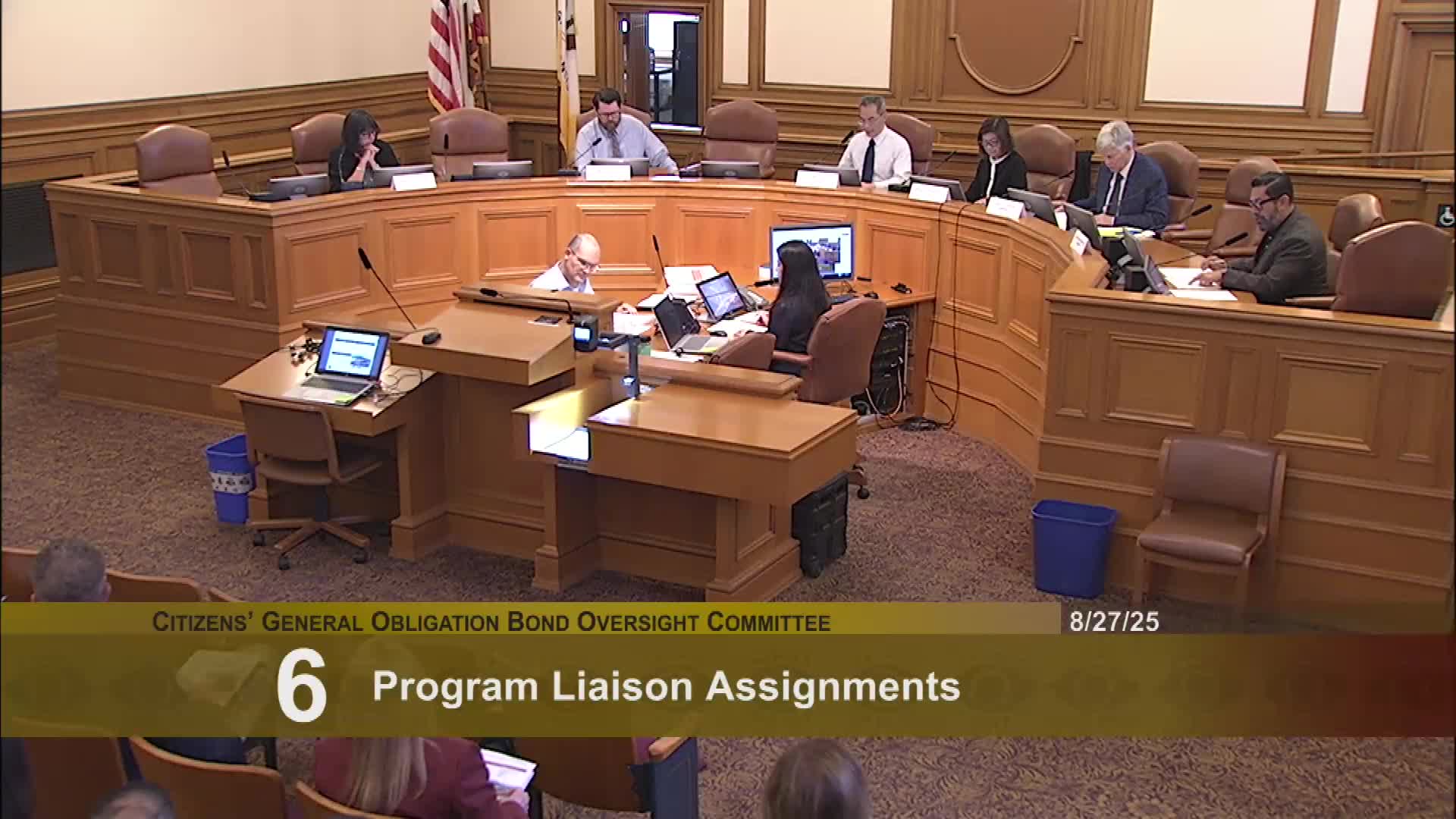
Committee adopts single-liaison policy for bond and program portfolios; assigns liaisons for fiscal year
